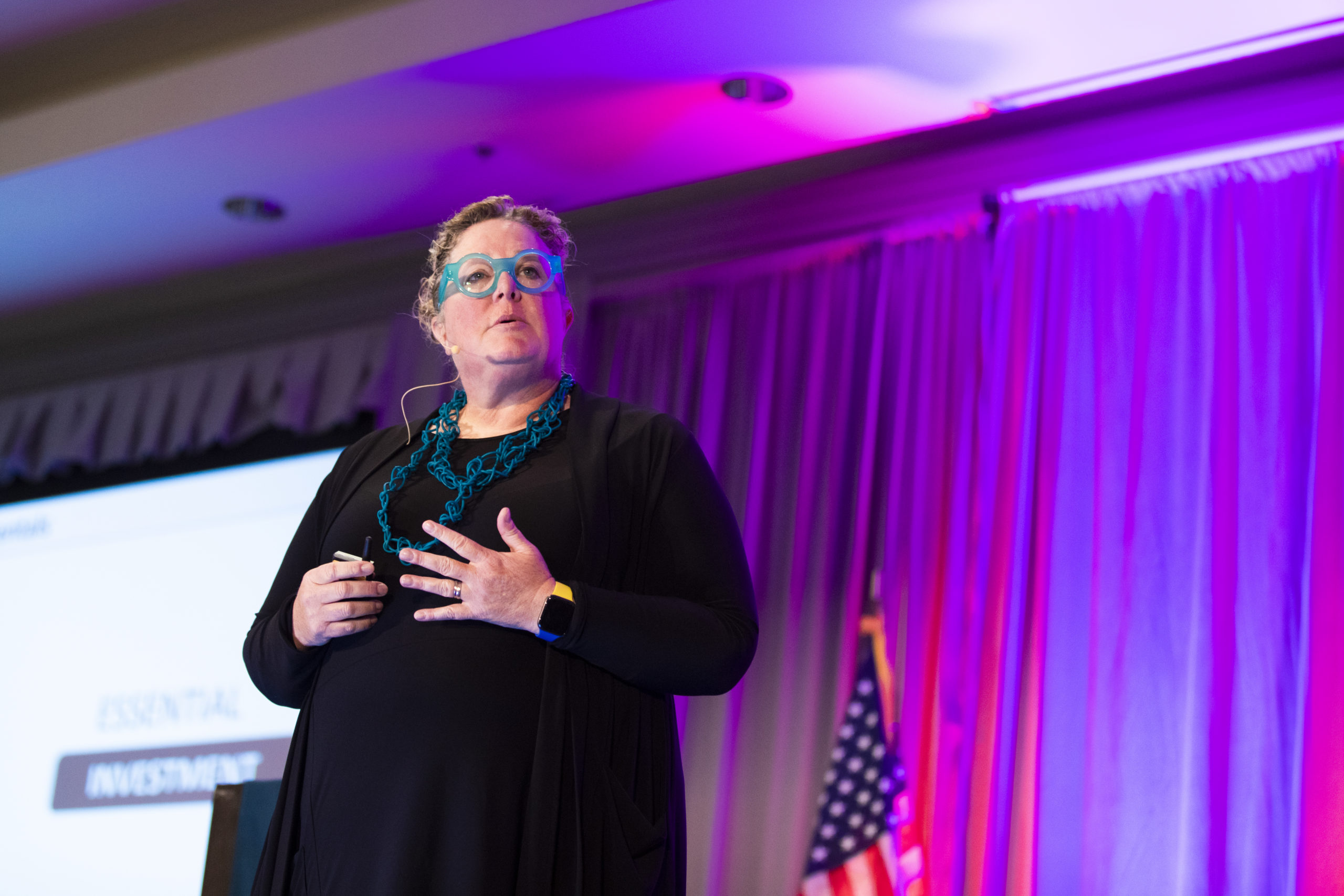Thriving in The Great Reset: Key Takeaways from Heather McGowan

Heather McGowan addresses NC Chamber Annual Meeting attendees.
While the discussion around where work will take place has received the most attention following the pandemic, Forbes Contributor and Future-of-Work Strategist Heather McGowan encouraged NC Chamber Annual Meeting Attendees to think bigger. More broadly, the past two years have also questioned: who works, what we do for work, how we work and how we measure that work, where we work, and, perhaps most acutely, why we work.
Here are our top takeaways from her presentation.
- The U.S. population is more racially and ethnically diverse than any time in our country’s history and that is just beginning to be reflected in our workforce. When it comes to who is working, in 1994, the largest group of those working ranged in age from 35 to 44, at 27 percent of the workforce. Today, the largest group of who is working is the 55+ group, at 25 percent of the workforce. Definitions of gender are becoming more fluid with each generation, so as those 55+ phase out of the workforce, this will have dramatic impacts.
- We are experiencing our greatest labor shortage since World War II.
- Second-chance hiring programs are extremely important tools – 64 percent of unemployed men in the 35-year-old age range have a criminal record.
- The male labor force participation rate declined by 10 percent between 1970 and 2020.
- Women are wildly outpacing men in earning degrees.
- Parenting adds about 2.5 uncompensated jobs to a workload. Much of this is falling on women.
- The definition of work is shifting. While we continue to identify a job by the skills for which someone is hired, enablers like the durable or soft skills that make you better at your job, an agile learning mindset, and resilient and adaptive identity now play a bigger role in success than the skills. Learning is now an expected part of working.
- How we work is changing more rapidly than ever. We converge, collaborate, and calibrate.
- This is also seen in the challenges faced by the world – it will take this approach to tackling issues like climate change, income inequality, and the future of work – all of which nearly half the workforce thinks business is not doing enough to address.
- We are no longer operating in a complicated world that can be led through individual intelligence. It takes collective intelligence to navigate the volatile, uncertain, complex, ambiguous (VUCA) environment of today.
- Globally, depression is up 28 percent, and anxiety is up 26 percent since the start of the pandemic. Mental and physical health can no longer be separated. The good mental health of the team is essential to its success.
- The pandemic-driven evolution of where we work is here to stay, expectations have shifted, and it is estimated that 37 percent of desks will remain empty. Hybrid and virtual are the expectation.
- When it comes to why we work, compensation has become one of the least-valued factors. People are looking for purpose in life and work is only part of that balance.
The NC Chamber team is already considering these shifts and championing focuses on talent, diversity, and mental health. We look forward to discussing those issues in more detail in the coming months.